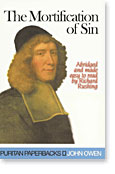I firmly believe that preaching and teaching God’s Word is the highest privilege in the world, without exception. To be charged by God Himself to preach His gospel, and to teach His people, never ceases to terrify and enthrall me. The man-hours required to study the Scriptures are no drudgery, but a delight; meeting with God in His word day by day. At 29 years old I feel so blessed to be called to this work.
 While being a young preacher can carry its own difficulties, (perhaps I’ll write about those in the future) to me one of the real benefits of being called so early in life is the joy I find in the prospect of improvement. I know that in coming into the work of ministry I have so much to learn, so much to improve, so much to change -and I find that hugely exciting. For me there is something special about being in the company of other more seasoned Pastors, listening to their experiences, learning from their encouragements and discouragements, taking heart from their perseverance in the service of God. I’m blessed to belong to an Association of churches which actively encourages contact between Pastors, and those times of fellowship mean more to me than I can communicate. I have colleagues who are patient with my questions, sympathetic of my inexperience, and prayerful about my ministry – and I thank God for them. Its so amazing to serve day by day in the prospect and knowledge that God is changing me, God is developing me; showing me my hopelessness and weakness, and His divine sufficiency. One of my prayers is that this sense of wonder will never cease.
While being a young preacher can carry its own difficulties, (perhaps I’ll write about those in the future) to me one of the real benefits of being called so early in life is the joy I find in the prospect of improvement. I know that in coming into the work of ministry I have so much to learn, so much to improve, so much to change -and I find that hugely exciting. For me there is something special about being in the company of other more seasoned Pastors, listening to their experiences, learning from their encouragements and discouragements, taking heart from their perseverance in the service of God. I’m blessed to belong to an Association of churches which actively encourages contact between Pastors, and those times of fellowship mean more to me than I can communicate. I have colleagues who are patient with my questions, sympathetic of my inexperience, and prayerful about my ministry – and I thank God for them. Its so amazing to serve day by day in the prospect and knowledge that God is changing me, God is developing me; showing me my hopelessness and weakness, and His divine sufficiency. One of my prayers is that this sense of wonder will never cease.
I’m also grateful to fellow servants of the Lord who take the time to blog their own ministry experiences, and post their own sermons. This has opened up avenues of fellowship and education that are unique to this generation. This morning I can read about servants of God in California, London, and Craigavon – and every one of them is teaching me something.
Then there is the experience at my age of living with the prospect of reading so many great books. I have a good friend in Peru who has inspired me, not only by his library, but by the depth to which he has read. Speaking with him is at once an inspiration to read, and an education from his reading. Book reviews and recommendations give me a flutter in the stomach as I look at all of the great things which God can use to engage my mind for however much longer I live (or the Lord tarries).
I think the bottom line is: I’m grateful to God for His mercy and grace in calling me. I’m thankful for the prospect of improvement privately, and in my preaching; I’m glad that God has put me into His service not to stagnate, but to grow and develop. I’m also richly blessed to serve in a church which has been patient with my youth, and which has given me space to learn and make mistakes. God really is so gracious!




